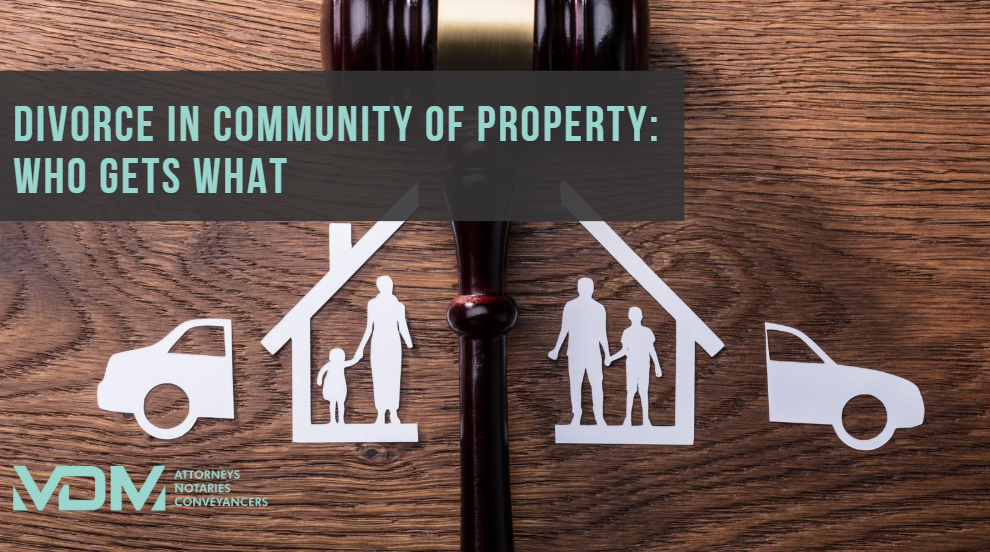
Divorce is never easy, and one of the most stressful questions couples face is: Who gets what? In South Africa, the answer depends largely on the marital regime. If you did not sign an antenuptial contract before marriage, you are automatically married in community of property.
This means that everything you and your spouse own (and owe) is shared equally, and must be divided 50/50 when the marriage ends.
What Does “Community of Property” Mean?
- Shared estate: The moment you marry, your assets and liabilities merge into one joint estate;
- Equal ownership: Each spouse owns an undivided half-share in the joint estate; and
- No opt-out: Neither spouse can deal with the estate as if it is solely theirs - decisions on major assets (like selling a house) require both signatures.
Division of Assets in Divorce
When a community of property marriage ends in divorce:
- All assets are split equally
- This includes immovable property (houses, land), movable assets (cars, furniture, jewellery), and investments (bank accounts, shares, retirement annuities subject to divorce laws);
- Even if one spouse contributed more financially, the law still divides assets equally;
- Pensions and retirement funds
- Retirement annuities and pension interests form part of the joint estate;
- The non-member spouse is entitled to claim a portion on divorce in terms of the Pension Funds Act;
- Donations between spouses
- Gifts between spouses during the marriage form part of the joint estate unless specifically excluded.
Division of Debt in Divorce
Just as assets are shared, debts are also shared equally, regardless of who incurred them. This includes:
- Home loans, vehicle finance, and personal loans;
- Credit card debt and overdrafts; or
- Sureties signed by one spouse.
This often comes as a shock - one spouse’s reckless spending or borrowing can legally bind the other.
When Assets Can Be Excluded
Not all property automatically falls into the joint estate. Exclusions include:
- Inheritances or donations specifically bequeathed to one spouse, provided the will or deed states they are excluded from the joint estate;
- Damages claims for pain and suffering; or
- Certain assets explicitly excluded by law or contract.
Can You Claim More Than 50%?
In rare cases, yes. A spouse can apply under Section 9 of the Divorce Act for a redistribution if the other spouse’s conduct was seriously prejudicial to the marriage (e.g., hiding or wasting assets). However, these applications are exceptional and require strong evidence.
Final Word
In a community of property divorce, the general rule is an equal 50/50 split of both assets and debts. While this sounds simple, in practice it can be highly complex — especially when it comes to valuing businesses, pensions, and hidden liabilities.
At VDM Attorneys, our family law team ensures that your rights are protected, that the estate is fairly valued, and that your divorce settlement is both lawful and practical.
📞 Contact us today for expert guidance on divorce, matrimonial property systems, and antenuptial contracts.